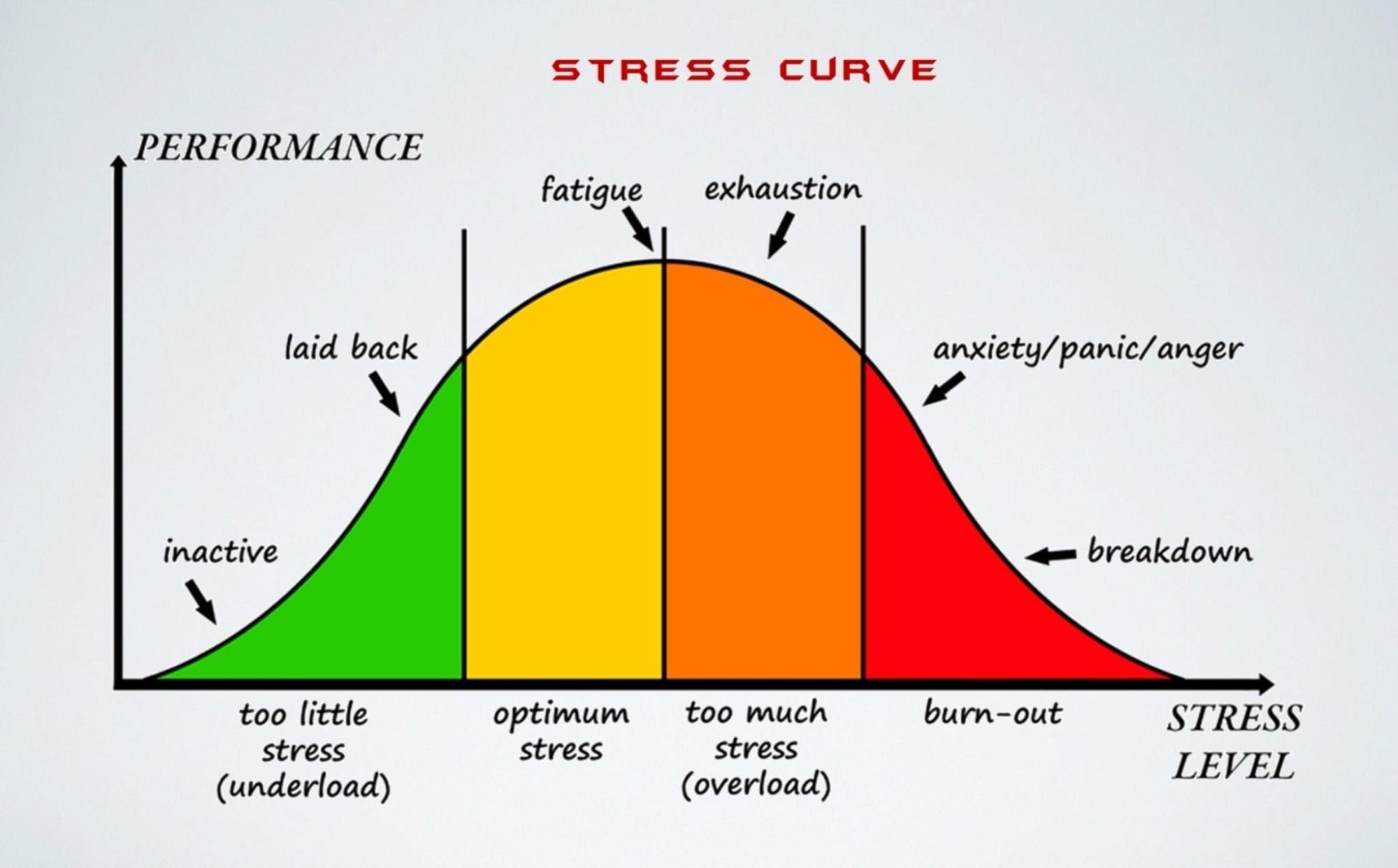Stress - the spectrum
Stress, the Spectrum.
How it can turn into anxiety, lead to depression and also some ideas on how to manage it.
Stress Awareness- so what is it? The good, the bad and the out of control …
Below I will provide examples of different types of stress to help you understand that there are different levels. This is a basic explanation to help you spot early warning signs of too much stress, track changes, and support your child. There has been a significant rise (over 250% since 2019) in childhood depression, not counting anxiety. The effects can build over time, but you can slow this down by recognizing that a problem exists and also rationalize that stress is normal at most levels.
Stress Spectrum
All the types of stress and progression pathway- What color are you?
Good Stress Stress is not ALL bad. If we had no stress there would be no motivation to get anything done. An example is test taking and public speaking- it’s normal and it should be uncomfortable and just enough to force you to study, practice and prepare. Without this, there would be no reason to do anything- which falls under the “too little stress” part of the example above.
Bad stress or Toxic stress such as financial and emotional or ANY CONSTANT STRESS can weigh you down and has minimal benefits. Options with this - try to plan the best way through this. A few questions you can ask your child and yourself- What do I have control over? What is the worst thing and best thing that can happen? What is worth my energy if I have no control over it? When do I need to worry? What can I do to prepare ? and then …deal with it when that time comes. Usually identifying the problem and coming up with solutions can diffuse this scenario.
Too much stress …leads to overwhelm
Overwhelm can sneak up on you and suddenly feel like too much to handle. It can feel heavy, making you feel stuck. Talking things through together is helpful, as there are always options. A class can be adjusted, a paper can be turned in late, or an extra activity can be skipped if school is demanding. Sports can be paused if your child needs time to catch up. Understanding that there are choices helps your child feel in control.
Map out choices with them, but if not managed and remains constant can lead to anxiety.
**at this stage emotional and physical symptoms have usually started to show up.
Emotional symptoms: irritability, crying, overwhelm, anger, suicidal thoughts
Physical symptoms: increased heart rate, headaches, chest pain, sweating and nausea, hives and rash ( from histamine)
Behavioral signs: withdrawal, difficulty sleeping, irrational, violence and substance abuse
Constant STRESS…. Causes ANXIETY….
Anxiety - worried about most or all of the things you are doing or thinking. This can cause you to question everything you do all day. Significantly slowing down how you function leading to more frequent overwhelm with every day choices that were easy prior. At this point we may also start seeing “panic attacks”.
Constant continuous anxiety can lead to feeling of hopelessness and helplessness and therefore Depression can set in if no intervention is started prior at the earlier signs.
Treatment plan:
Break it down into manageable pieces and make a plan - get control over what you can control.
Write it out in journal or talk it out together. If your teen will not talk to you, start a communication notebook.
Check in on sleep: too much or too little with lack of interest in normal activities. Sleep is necessary to function as lack of sleep causes similar symptoms to above all by itself. Goal of 8-9 hrs at night for kids especially teens.
Exercise- natural release of stress, clarity of mind and decompress from constant stress. May help “clear your thoughts”, release happy endorphins.
Meditation and deep breathing: helpful apps: calm and headspace. See the next blog “How to prevent Panic” which will review breathing techniques in detail. Yoga and Tai Chi combine both movements and breathing to achieve these goals.
Progression of symptoms:
As we work our way down to Anxiety and frequent panic attacks you may need the help of a mental health counselor to help you work on your feelings in a controlled setting. Sometimes medications may be needed to help. Medicine alone however will not help enough. Counseling and the self-work is needed to gain control again and should always be recommended together.
Resources:
Breathing techniques - review panic blog for links
Hatch alarm clock - helps you meditate to sleep and wake up peacefully
The Tapping solution app- calming techniques for kids.



